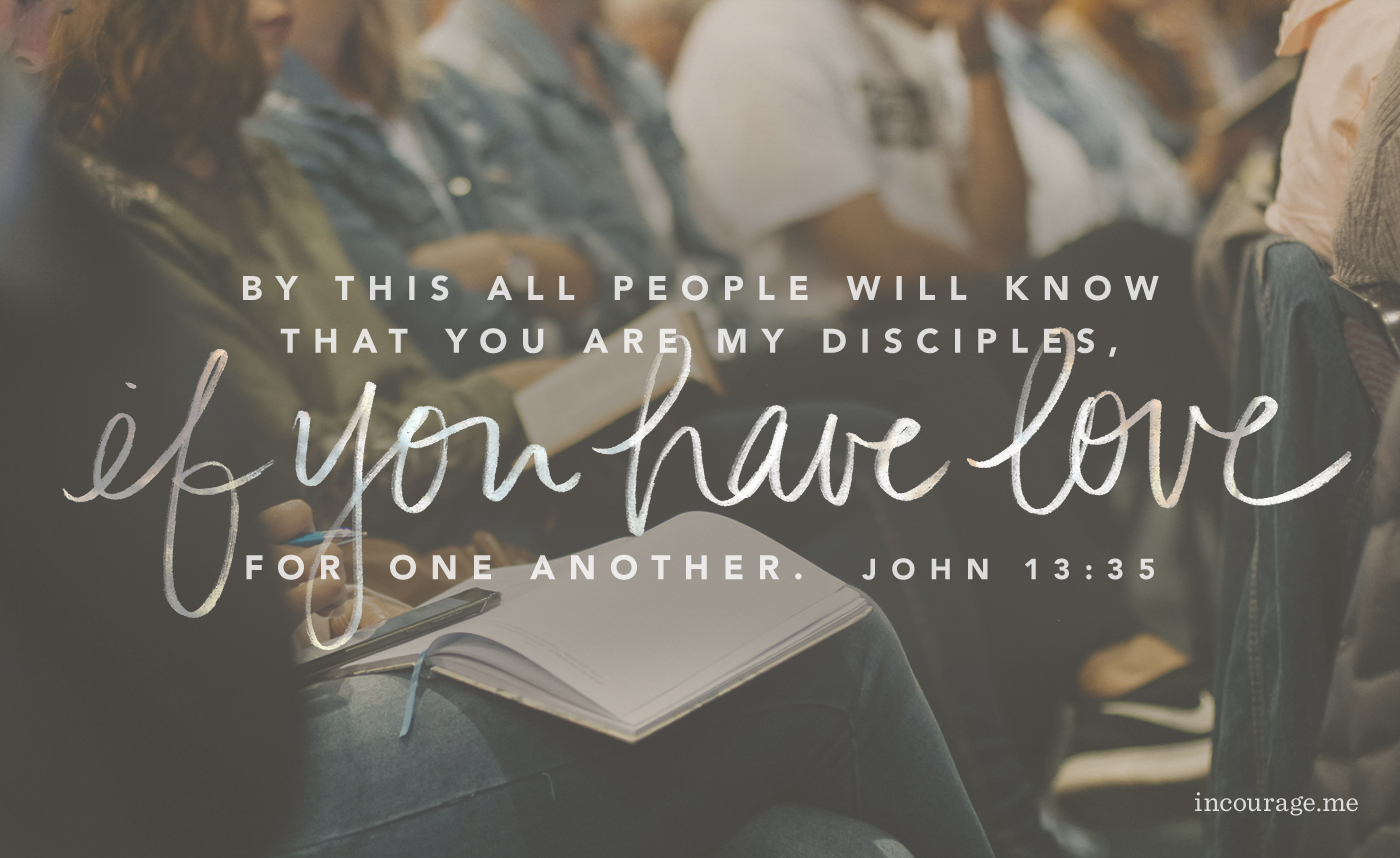She whipped the car into the church parking lot, pulling the keys out of the ignition and shoving them into her purse. Being late was nothing new to us, but it usually came with some embarrassment. This time, however, being late was a relief. We hoped to slip in without having to talk with people or look them in the eye.
We approached the door, our knotted stomachs victims of anxiety. It was our first time in years attending a church service. Most people had their Bibles, but how could we carry one when our hands were so full of baggage and burdens it was all we could do to put one foot in front of the other?
Everyone was standing and singing. Another relief. We snuck in, sliding into the back where no one could see if we knew the words to the songs or what to do next. I looked around at the families there together all neat and composed. They knew the words. They knew what to do. They could smile and laugh, and they had answers.
I sank a little deeper into my seat.
Even if we tried to blend in, we couldn’t. We stood out. It was just me and my mom again, back to how it had been when I was born. But then she had gotten married to a different man and things went from bad to worse. There were the arguments, improprieties, betrayal, and the deception that piled up and broke us, culminating in their separation and leaving us feeling more used, unloved, and unwanted than ever before. And here we were now, spotlighting our problems before people who didn’t appear to have any.
We weren’t smiling. We were crushed, and we had questions.
We didn’t know where else to turn, so we turned to the church. We thought it would be a safe place. We thought whatever we needed, we might be able to find there. We thought maybe we could trust them with our questions, our heartbreak, our not fitting in, and to our relief, we were right.
It has been said that the church is a hospital for sinners, not a museum for saints, and those people came to us like medical personnel, checking our vitals and starting CPR. They cared for us and spoon-fed us and helped set what was broken and diagnose problems we didn’t even know existed.
They didn’t do this primarily through programs and processes. They did this through truth and love. My mom came to know Jesus there, and I came to find out that the profession of faith I had made years back, kneeling beside my grandma, was genuine. God stirred in us a love for Him as we saw their love for us.
By this all people will know that you are my disciples, if you have love for one another.
John 13:35 (ESV)
Maybe your experience is similar to ours. You can remember what it was like to be unchurched and anxiously enter that seemingly strange environment for the first time in a long time or for the first time ever.
Or maybe you’ve been in church since you were a baby, shortly after your parents brought you home from the hospital. You trusted Christ when you got older and have never known anything different.
Regardless of our varied past experiences, each week we need fresh eyes to greet our church’s guests, whether they’re shyly sneaking into our auditoriums or are assuredly looking us in the eyes. We need a renewed perspective to graciously ease into the story of their lives and find out what brought them through our doors.
We do this by remembering our own stories. We remember that those who love much are those who have been forgiven much, and we recount how we have been and are being saved from the depths of sin and brokenness ourselves.
We recall our own encounters of when Jesus met us like He did the outcast and the marginalized woman at the well, satisfying our souls more than any other human relationship — or five — ever could. We remember how He was patient with us like He was with the self-righteous Pharisee, answering our questions and personal hang-ups and telling us of His sacrificial love for the world. We remember how He didn’t pull away, flinching in horror, but extended His hand to us like He did to the leper, touching our uncleanliness and showing us that His healing power is stronger than the debilitating, deforming power of sin.
It’s then that we can have a mindset ready to compassionately meet those who walk through our church doors because we become united with them in shared neediness. It’s then that we won’t keep a distance from those smelling of alcohol, smoke, body odor, or unwashed clothes as though we might become contaminated if we get too close.
Because if He’s done all that He did for the Samaritan woman at the well, for Zacchaeus, Nicodemus, the leper, and for you and me, He can certainly do the same for those pulling into our church parking lots each week, their hands full of baggage and burdens too.






I’ll confess–I was holding my breath through the first part of your story. So often the church drops the ball when someone comes to their ER needing care and comfort. I’m so thankful that you and your mum found the love of Jesus embodied in that fellowship, and your story motivates me to do a better job of scanning the room on a Sunday morning. My own story of landing in awkwardly in a church’s basement Sunday School classroom with no answers to any of the questions and a mortal fear of the swooping church ladies should serve that purpose, but sometimes I forget.
Thanks for sharing this Erica! Such a great reminder we need! It is so easy to get caught up in seeing friends, and feeding our own souls at church, that we can forget to look for the stories of those around us. 🙂
Thank you, Erica. I had a similar experience when a young girl after my parents’ divorce. We moved to a new state to live with our grandparents. They took us to church every Sunday. I drank it up–the Sunday school, the covered dish dinners, the hymn singing. Since those 41 years ago, I’ve gone in and out of churches for different reasons. Looking back, I begin to see that it was because I was allowing others to determine my life–or I was adjusting my life to fit others. After losing my husband and raising my kids I’ve developed the habit of retreating. I want to be there–in the Church but find I lose heart and courage, thinking I’m not good enough or church-like enough. I’m always hesitant and timid about stepping forward, but always yearning and wanting so much to be a part. Yet just lately, I understand that I was wrong to let anything come between me and Christ. And that it is an act of faith to even walk through the church door on Sunday– my awkwardness, fear, and vulnerability could possibly be used to encourage others! And to walk in church while those things beset me is an opportunity to trust God. I’m finding that all this fear and hesitancy is just a smokescreen keeping you from the good, sweet, loving big arms of Christ and his people.
“My awkwardness, fear, and vulnerability could possibly be used to encourage others!”
Stephanie, your words are encouraging ME right now! I relate to you and the fear and hesitation. In my case I’ve discovered I’m often tempted to prove to the church that I am good enough. As if there’s anything I need to prove when Jesus’ blood covers me and makes me righteous!
My pastor once said something that helps me in the battle against those lies: “Let’s not be ashamed of our clay because he has chosen to place the treasure of the light of his glory in jars of clay to show that the power belongs to him and not to us!” (2 Corinthians 4:6-7). I pray to remember this and let awe of God and of what he can do through a jar of clay fuel my heart and life!
Loved what you said! “I’m finding that all this fear and hesitancy is just a smokescreen keeping you from the good, sweet, loving big arms of Christ and his people.” ❤️ Our communities need our hearts and vulnerability!
Thank you for sharing your story and what a blessing to hear how it all turned out as you took the bold steps to engage again with church and with the Lord! I’d like to believe most churches are welcoming and nurturing to all who come, I know our church is and is one of the reasons we are there. Individually, we also need to be welcoming and nurturing to everyone who crosses our path.
I agree, church should be a healing place not a hurting one, but people are human and make mistakes, God does not, forgiveness goes along way as people do their best to serve the Lord.